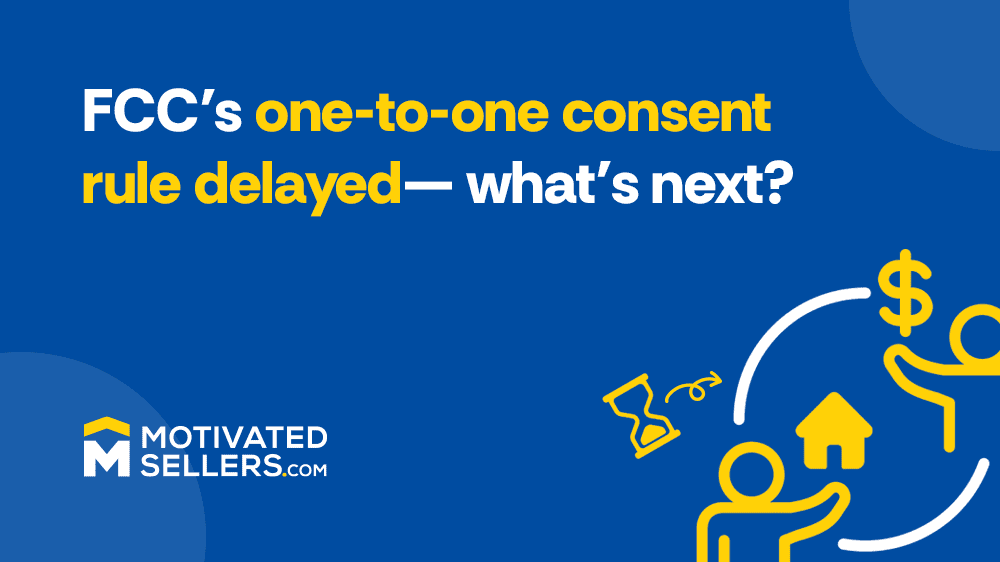

In this article, we’ll discuss what happened and how real estate investors should continue to prepare their businesses for the upcoming changes. You can learn about the FCC one-to-one consent here.
The Insurance Marketing Coalition is a group of stakeholders in the insurance industry. The purpose of IMC is to promote ethical and legal marketing of insurance products to consumers. The role extends to protecting consumers from unwanted calls or guiding consumers about insurance coverage options.
On January 26, 2024, IMC filed a petition at Eleventh Court against the TCPA new rule one-to-one consent. According to the one-to-one consent rule, consumers may only give consent to receive marketing calls and messages from one company at a time. The marketing calls must be “logically and topically” related to the consumer consent.
The IMC argued that these consent requirements are unlawful because they
In response, the FCC argued that one-to-one consent requirements are:
The panel at Eleventh Circut heard oral arguments on December 18, 2024. The IMC argued that the new rule created different definitions of "prior express consent" for automated marketing calls compared to other types of calls. The Eleventh Circuit agreed, finding that the FCC had misinterpreted the term "prior express consent" by setting up rules that contradicted the plain meaning of the term as it is understood in law.
One hour before the court ruling, FCC decided to postpone the one-to-one consent. The FCC stated that it seems fair to postpone the new rule while a judicial review is in progress. Postponing the rule prevents businesses from facing private lawsuits while the court review is pending. The court later overturned the one-to-one consent rule.
The Eleventh Circuit's decision to delay the FCC’s one-to-one consent rule stemmed from several legal challenges and concerns from industry groups. Opponents of the rule argued that it imposed excessive restrictions on legitimate business communication and would hinder effective outreach strategies.
The postponement allows time for further legal review and potential revisions. However, it does not necessarily mean the rule will be permanently abandoned. The case could lead to modifications or new regulations by 2026. If the Eleventh Circuit sides with the IMC, it could block or alter the new rule nationwide.
The current TCPA rules about getting written permission will still apply during this delay. If the court agrees with the new rule, the FCC will announce a new start date within 15 business days, and the rule will take effect no later than 90 days after the court's decision.
For investors and wholesalers who use telemarketing to connect with motivated sellers, the delay provides temporary relief. Here is what it means:
The entire purpose of FCC one-to-one consent was to reduce the number of harassing calls or messages a consumer would receive. It’s important to only communicate with customers who want to hear from you.
It might be a good time to look into other lead generation options if you were mass-texting to contact lists. You can explore alternative methods such as direct mail, cold calling (where legally permitted), and paid online advertising.
It’s a delay, and the rule might be enforced. There could be several possible outcomes:
Real estate investors should stay informed and track updates to this law. You might need to adjust your marketing strategies to stay compliant with the new rules.
The postponement of the FCC’s one-to-one consent rule provides temporary relief for real estate investors and marketers, allowing them to continue using previous marketing options without additional restrictions. However, this delay should not be seen as a permanent solution. Mass-calling or mass-texting without consent was never a good idea. It’s time to adopt improved opt-in strategies so your business can remain adaptable regardless of future regulatory changes.